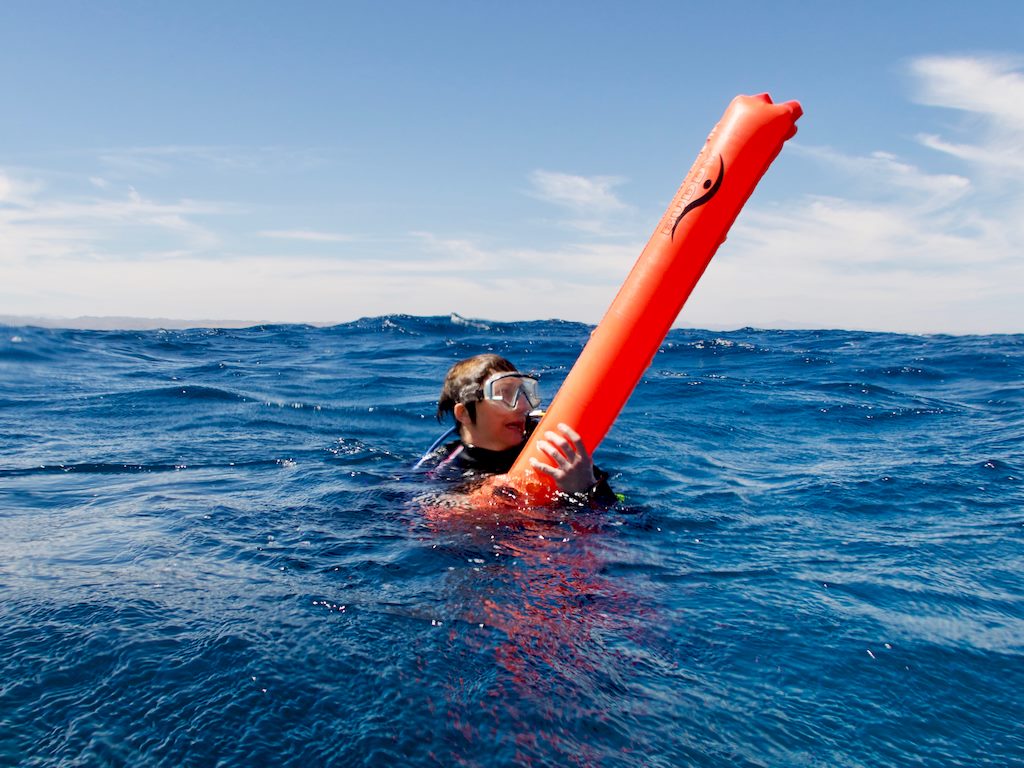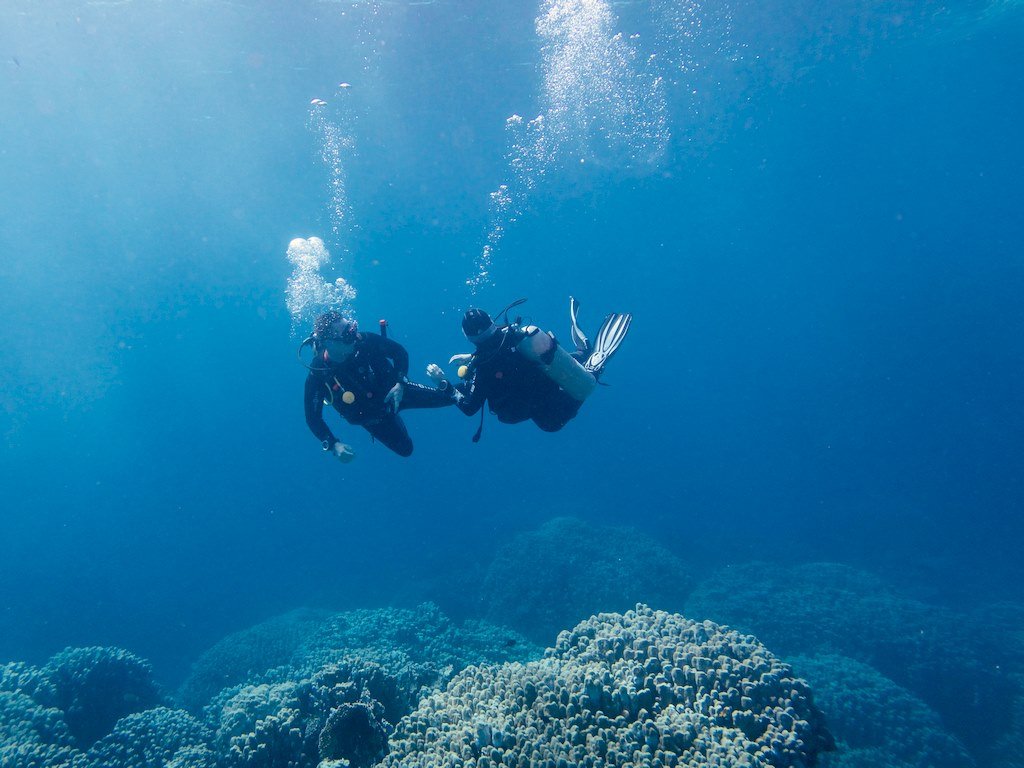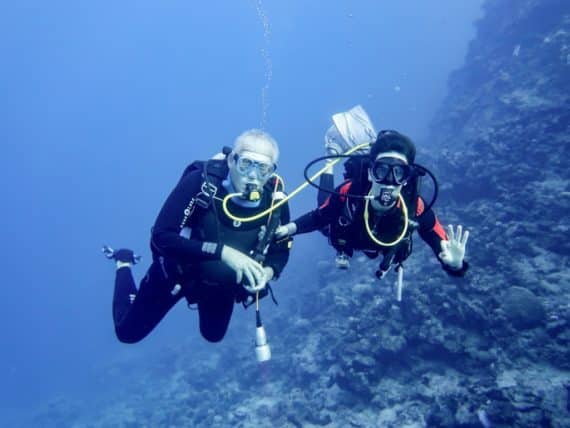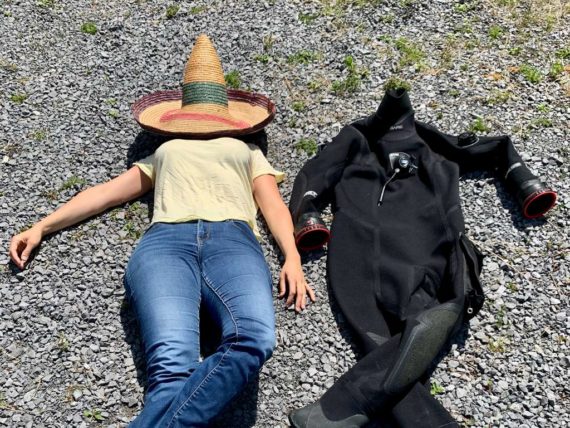Giving oxygen for a diving accident: Science or Law, that’s the question
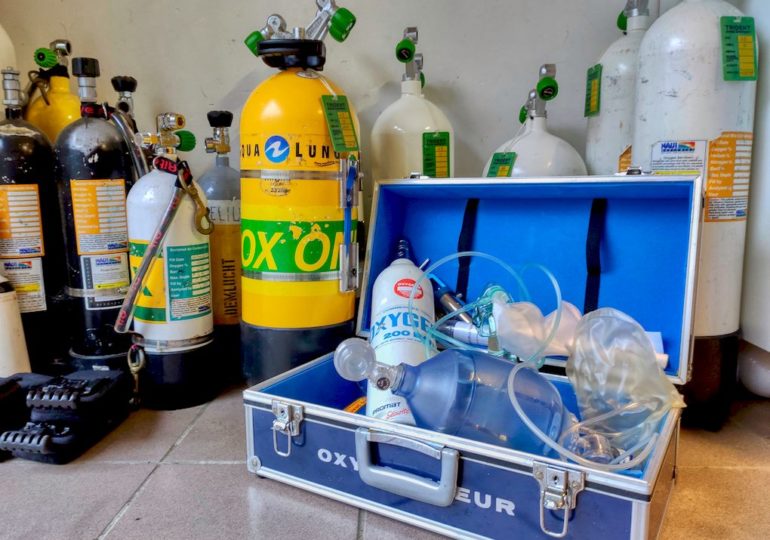
Giving oxygen for a diving accident: Science or Law, that’s the question
Recently, the Belgian Society of Hyperbaric and Underwater Medicine organized a conference about the promising theme: The diver and the law – civil and criminal liability. This is a subject that regularly animates diver’s discussions: giving oxygen ?
I had participated in a previous day on taking care of an injured diver. Also, I must say that I was more than happy to repeat the experience.
Informations come from all directions, sometimes in French, sometimes in Dutch with slides in English. No doubt, we are in Brussels.
The speakers are open, warm and not stingy with exchanges, especially during breaks.
Guy Vandenhoven: Doctor (MD) specialized in sports medicine and diving. He is President of SBMHS and a member of the LIFRAS Commission and the SKA office.
François Jaeck: lawyer at the Court in Blois (France) is a diving instructor and Executive Director of the DAN Europe Legal Network. More information here
Peter Germonpré: (MD) Head of the Hyperbaric Oxygen Therapy Centre at the Brussels Military Hospital is a specialist on PFO issues and DCS.
Catherine de Maeyer: (MD) cardiologist, revalidation physician and specialist in hyperbaric and underwater medicine. She is also President of the NELOS Medical Commission.
Olivier Goldberg: (MD) President of the LIFRAS Medical Commission. He is an emergency medicine specialist and Head of the UZ Brussel Emergency Services.
Marc Van Bouwelen: Chairman of the Technical Commission of Nursing Art of the SPF Public Health. He is also a nursing legal expert at the NVKVV (Institute for Continuing Training for Nurses).
Find all presentations on the SBMHS website
Various points are discussed during this day but it is ultimately the question of giving oxygen that seems to me the most relevant to relay to you.
Giving oxygen for a diving accident: the issues raised
Do I have the level or training to do it? What does the law say? Do I have to wait before giving oxygen? Is it necessarily an instructor that has to do it? What oxygen to give?
In France, scuba diving is one of the sports at risk (which is not the case in Belgium). By practicing this activity, we are normally aware that one day we may find ourselves having to assist another diver.
Many legitimate questions circulate around the issue of giving oxygen in diving. And the experts responded perfectly well.
Giving oxygen in a diving accident: what science says
When to give oxygen?
The experts are unanimous: Oxygen must be given until the person is taken care of by the emergency services.
Preferably following these recommendations:
Giving oxygen in a diving accident: What percentage?
If you still have any doubts, stop now. Oxygen should be given in the highest possible concentration regardless of the oxygen saturation in the person’s blood.
Ideally, giving 100% oxygen is the best solution with a minimum flow of 15 litres/minutes.
Regardless of the scientific source, the advice is the same: it is 100% oxygen without interruption.
Similarly, it is preferable to give 100% oxygen for 30 minutes rather than 50% oxygen for one hour. Do not attempt to “adapt” even if you are afraid of running out of gas before the diver is picked up by the emergency services.
Medical or industrial oxygen, a difference?
Olivier Goldberg told us that if he has a problem, he asks us to give him medical or industrial oxygen without making a difference. I’m making the same choice. Especially when you consider that the difference lies mainly in the rinsing of tanks and the people who are authorized to use them. Besides that, no difference, so no reason not to use oxygen.
Giving oxygen in a diving accident: To whom?
Oxygen should be given to ALL diver with clear or less obvious signs of a decompression accident. For NELOS, there are some special cases for which you should not give oxygen (check their web site for more information), for others the message is: in doubt, always choose safety and give oxygen to the injured person .
What the Law says
Each country will have its own regulations. You should find out about the laws and regulations in force of the countries in which you are going to dive.
For France
According to the law, you must assist anyone in danger. The problem often lies in in these questions: yes, but what if I hurt? If I don’t give well? Or not enough? …
It’s quite simple, there are two options:
- Option A: you do not do it for fear of doing wrong and getting into trouble: you will no longer be covered by insurance. In case of a problem it will be an intentional offence (you intentionally decide not to assist)
- Option B: you do it: you will be covered by your insurance even if things “go wrong” because the fault will then be unintentional.
The only case accepted by the law and in which you may not assist is one where there is a danger for you to do so.
From expert experience, it seems that no diver had been worried about giving oxygen in a diving accident.
And even if that happened, he would probably not be worried very long since the international scientific community advises to do so.
So the answer is clear: EVERYBODY can give oxygen. Whether you are trained or not to give oxygen.
For Belgium
Here it’s very different. in recent years, giving oxygen has been considered a “nursing act”. Unless they are empowered to do this, no one can give oxygen. This is reserved for doctors, nurses or other paramedics attached to a 112 service,… This is what makes buying and filling tanks so complex in the flat country. One of the reasons given is that the rescue system is organised in Belgium so that it would take only a few minutes for them to arrive at the scene of the accident. However, I would still like to point out that I witnessed the unfortunate death of a colleague in my workplace. It took 45 minutes for the paramedics to arrive! Unfortunately, they were mobilized that day on two other serious cases. The person died … she was 27 years old.
In the specific environment of diving it is a debate. Because only those who are authorized to do so can give oxygen, even in the event of a diving accident.
So, of course, that raises questions.
Should we give oxygen (the way science tells us to do) while waiting for help in front of a person showing signs of DCS? Or, do we have to wait, doing nothing to respect the Law and observe in silence our oxygen tank?
Science tells us to act as soon as possible. The law does not allow us to do that. There are oxygen tanks everywhere available… But we can’t use them.
What can I do? Are we going to be outlaws or are we not going to follow what science tells us?
Between Science and Law, as far as I am concerned, I have made my choice. What will be yours?
And above all… remember to be happy 🤗
Hélène
Have you also read these articles?
- 6 tips to protect your ears while diving
- Do you stay with your buddy during deco stop ?
- Scuba diving… not even scared

